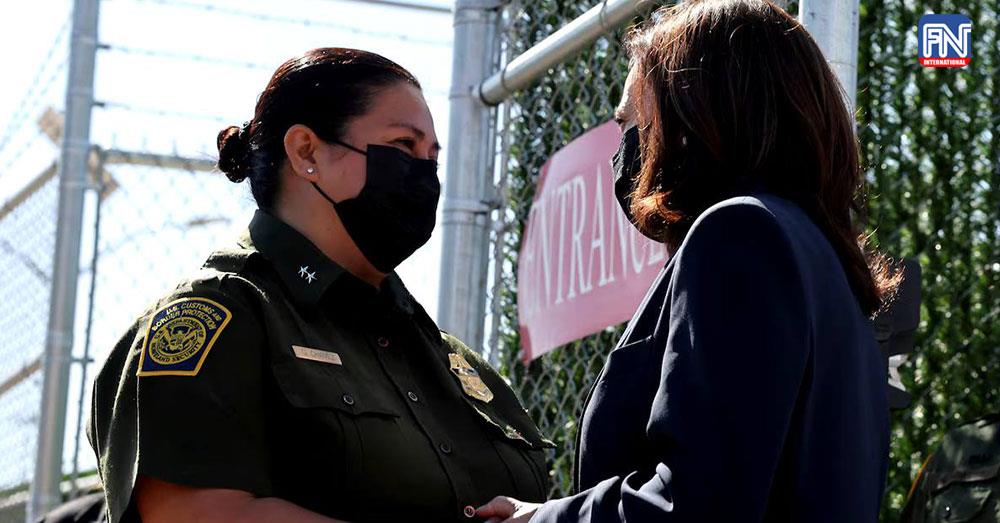WASHINGTON, July 30 (Reuters) - Vice President Kamala Harris, tasked to deal with the root causes of migration from Central America as illegal border crossings were rising in 2021, immediately ran into the enormity of the mission.
The region is riddled with corrupt government officials, the drivers of migration are deeply rooted in economic inequality and social factors - and she didn't control the border.
"She was given a very hard, difficult, convoluted portfolio," said U.S. Senator Chris Murphy, a Democrat on the Foreign Relations Committee and an architect of a bipartisan border security bill introduced earlier this year.
At campaign rallies and in social media posts, Republican presidential candidate Donald Trump has intensified his attacks on Harris as a failed "border czar," especially now that she has emerged as the likely Democratic nominee after President Joe Biden ended his campaign for reelection this month.
Despite Harris' efforts, some 7 million migrants have been arrested illegally crossing the U.S.-Mexico border under Biden, according to government data, all-time highs that have fueled Republican criticism.
The reality of Harris's record on migration is far more complicated, according to interviews with three current Biden officials, 13 former officials and others tracking the issue.
First, Harris was never given the portfolio of border czar, said Alan Bersin, who embraced the label as a special representative for border affairs under Presidents Barack Obama and Bill Clinton. "This was not the job assigned to VP Harris," he said.
Instead, Biden asked Harris to lead diplomatic efforts to reduce poverty, violence and corruption in Central America's Northern Triangle countries of Guatemala, Honduras and El Salvador, as well as engage with Mexico on the issue.
It was similar to the job Biden had when he was vice president.
But that was an overly broad mission, Murphy said.
"It's hard in a short period of time to come up with a strategy that impacts the very real and complicated psychological decision-making that people in those countries go through when they're deciding to come to the United States," Murphy said in a phone interview.
And within months of Harris taking the job, the focus on the three Central American countries was out of step with the reality at the border - where illegal immigration from Cuba, Haiti, Nicaragua and Venezuela was spiking, several former officials and outside experts said.
"She started off, in a sense, at a disadvantage because everyone was focusing on those three countries in the Northern Triangle," said Roberta Jacobson, who served as a coordinator for the U.S.-Mexico border in the early months of the Biden administration. "Meanwhile, the migrant population was changing dramatically."
Harris continued to lead the Central America effort although she has increasingly focused on abortion rightsthis year, a top Democratic issue since a 2022 U.S. Supreme Court decision struck down the nationwide right to an abortion.
The White House said in March that Harris helped engineer $4 billion in government aid and commitments of $5.2 billion in private investment to create or support an estimated 250,000 jobs in Guatemala, Honduras and El Salvador.
Nespresso started sourcing coffee from El Salvador and Honduras in 2021. Gap Inc said it is on pace to meet a pledge to invest $150 million by 2025 to source textiles in the region and that it had increased yarn production in Guatemala and provided skills training to women in Guatemala and Honduras.
Ricardo Barrientos, director of the Central American Institute of Fiscal Studies think tank, said the U.S. aid and private sector investment was a fraction of the remittances migrants from the three countries working in the U.S. send home each year – $37 billion last year alone.
"It's very small compared to the magnitude of the challenge," he said. "Or some would say, 'too little, too late.'"
By May, the number of migrants from the Northern Triangle caught crossing illegally had fallen to 25,000 from a peak of 90,000 in July 2021 - although experts say the impact of Harris' efforts remain unclear.

Photo from Reuters